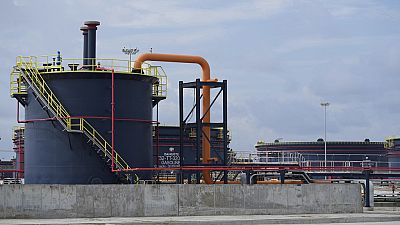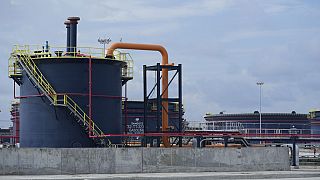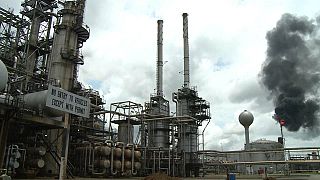Nigeria
Africa's biggest oil refinery has begun production in Nigeria, the company has said, ending a yearslong wait for a plant that analysts said Monday could boost refining capacity in a region heavily reliant on imported petroleum products.
The $19 billion facility, which can produce 650,000 barrels per day, has started to produce diesel and aviation fuel, the Dangote Petroleum Refinery company reported Saturday. As Nigeria's first privately owned oil refinery, the project "is a game-changer for our country," it added.
Nigeria is one of Africa's top oil producers but imports refined petroleum products for its use. The nation's oil and natural gas sector has struggled for many years, and most of its state-run refineries operate far below capacity because of poor maintenance.
The Dangote refinery is "not a silver bullet" for Nigeria's energy crisis, according to Olufola Wusu, an oil and gas expert who was part of a team that helped review Nigeria's national gas policy. "But it is a great way to revive the sector … and will help move Nigeria from being a major importer of refined petroleum products to self-reliant in domestic refining capacity."
She is described by the company as the world's largest single-train refinery, the private refinery is owned by Africa's richest man, Nigerian industrialist Aliko Dangote. It is located on the outskirts of Lagos, Nigeria's economic hub, and operates alongside a fertilizer plant.
The plant is expected to meet 100% of Nigeria's needs for gasoline, diesel, kerosene, and aviation jet fuel at full production capacity, Dangote said last year when the facility was opened. At least 40% of the oil products made there also would be available for export, the company said.
The plant received about 6 million barrels of crude so far from Nigeria's state oil firm, NNPC Limited, to kickstart its operation, although it could take months before the refinery reaches full capacity, according to analysts.
Some citizens have expressed hope that the new plant would soon help reduce consumer gas prices, which have tripled from a year ago after the government stopped decadeslong subsidies.
Analysts have said any impact on prices would still depend on industry trends such as the cost of crude, government interventions such as subsidies, and the local currency's exchange rate to the dollar.














01:40
Kenya cancels airport and energy deals with Adani group after the U.S. indicts the tycoon
Go to video
Fugitive Zambian MP Emmanuel Jay Banda arrested in Zimbabwe after three-month Manhunt
Go to video
Spain to offer residency and work permits to undocumented migrants
Go to video
Archbishop of Canterbury will end official duties in early January amid sex abuse scandal
Go to video
Congo opposition leaders call for protests against president's plan to change constitution
01:30
Mali: Former al-Qaida-linked police chief sentenced to 10 years for war crimes